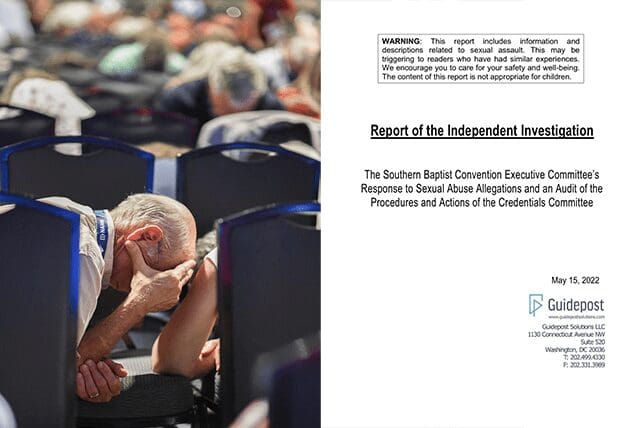“For the entire relevant period, survivors and their advocates fought to be heard by SBC leadership. The very existence of this report is attributable to their perseverance,” the report says. “As this report makes clear, there were divisions within EC leadership between those who were open to addressing the survivors’ allegations publicly and instituting reforms, and others who sought to minimize or ignore allegations in an effort to protect the reputation of the SBC and avoid the risk of legal liability for sexual abuse at SBC churches.”
Among the more shocking revelations in the report were the credible allegations against longtime pastor and former SBC president Johnny Hunt, who is believed to have sexually assaulted the wife of a younger pastor and mentee in 2010.
“Based on these efforts, it appears that nine (9) people [who committed sexual assaults] remain in active ministry or connected to ministry,” the report also found. “Two (2) of those people appear to be associated with an SBC church. The remaining seven (7) appear to be associated with churches that are not SBC-affiliated.”
The SBC’s Handling of Sexual Abuse Allegations Through the Years
The report follows the 20-year history of abuse allegations and the EC’s response, enumerating a litany of survivor stories and their fight to be heard by SBC leadership.
The timeline began in 2000 with the SBC presidency of Paige Patterson, now disgraced former president of Southeastern Baptist Theological Seminary, who refused to cooperate with Guidepost investigators. Thus, they were unable to determine what, if any, actions were taken during that time in response to credible sexual abuse allegations.
However, the report did find that in 2004, when abuse survivor Christa Brown sent a letter to SBC leaders, including then president Bobby Welch, detailing her sexual abuse at the hands of an SBC clergy who was currently serving at another SBC church, they did not respond. Instead, the letter was passed along to legal counsel, who provided a suggested response.
“[The statement] would be sympathetic, would describe how the SBC lacks control over ministers and churches in the hiring of ministers, our appreciation for the national tragedy of clergy sex abuse, but would not respond to demands specifically,” Guenther suggested. “Then we would wait to see what transpired. We may or may not get sued. There is no explicit threat in that regard.”
“We treasure local church autonomy because that fact and consistent practice, rooted in our religious beliefs, is what saves us,” Guenther later said in 2020, indicative of his consistent approach and advice to all high level SBC leaders through the decades.
Brown went on to sue her abuser, as well as the church and music minister who knew of the abuse, entering into a settlement in 2006. That same year, Brown wrote a letter to then SBC president Frank Page describing how her abuser was allowed to continue in ministry even after his abuse had come to light. Page responded by telling Brown that given local church autonomy, doing anything about it was beyond the scope of his authority.
In response to further advocacy for robust systems that protect churches and people from abuse, such as a national registry of sexual offenders that SBC churches could consult in hiring processes, EC inside counsel Boto publicly berated Brown. Brown continued to be ignored and ridiculed by Boto and members of the EC for years.
Even as the EC received multiple complaints about sexual abusers in local churches in separate instances, these complaints were not followed up on, and high level SBC leaders continued to publicly downplay the frequency of abuse in the SBC.
Continued proposals of a national database of sex offenders and investigations into churches that harbored sex offenders as clergy were consistently rebuffed.

